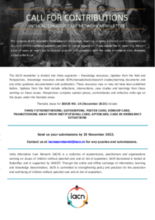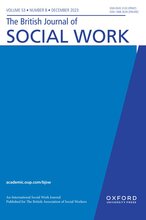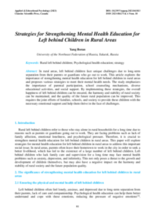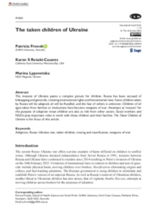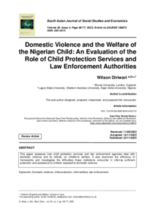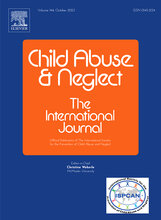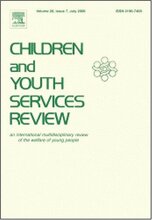Displaying 681 - 690 of 14551
India Alternative Care Network (IACN) is calling for contributions to the 14th edition of IACN Quarterly. IACN believes that the exchange of learning, challenges and information, evidence, interventions, and insights wi
This article uses life history research to reveal a new understanding of institutional care. The study draws on interviews with care leavers from a Latvian orphanage who narrate life histories and identify critical life events and moments of resistance to times of adversity.
Dr Rhiannon Evans, Reader in DECIPHer, discusses a systematic review taken of international evidence to understand what programmes work for improving the mental health of care-experienced children & young people, how they work, and what m
A Russian lawmaker and staunch supporter of President Vladimir Putin has denied media allegations that he adopted a missing 2-year-old girl who was removed from a Ukrainian children’s home and changed her name in Russia. Sergey Mironov, 70, the leader of political party A Just Russia, asserted on social media that the Ukrainian security services and their Western partners concocted a “fake” report to discredit true Russian patriots like himself.
This study reviewed the prevalence of mental health disorders among Looked After Children in the UK.
This article explores the importance of strengthening mental health education for left behind children in rural areas and proposes various strategies to meet their mental health needs. The study emphasizes the importance of parental participation, school counseling mechanisms, diverse educational activities, and social support.
This article focuses on The Taken Children of Ukraine during the first 6 months of the war and its implications for social workers engaged in work with children and their families.
This paper aims to contribute to an understanding of how Child Protection Services and Law Enforcement Agencies in Nigeria can combat domestic violence against children. It seeks to provide recommendations, on strengthening these entities as other important stakeholders involved in preventing detecting, responding to, and protecting children from domestic violence.
The objectives of this study were to examine (1) the associations between parental absence for six months or more, adverse childhood experiences (ACEs), mental health problems, and substance use among young adults in sub-Saharan Africa, (2) whether parental absence and other ACEs are independently associated with mental health outcomes and substance use, (3) and if parental absence explains additional variance above and beyond those explained by other ACEs.
This study aimed to explore variability in adaptive functioning in social competence, mental health, and school adjustment in a sample of children in foster care in Spain, and to assess which factors differentiated resilient children (i.e., showing adaptive functioning across domains) from those who were not resilient.

